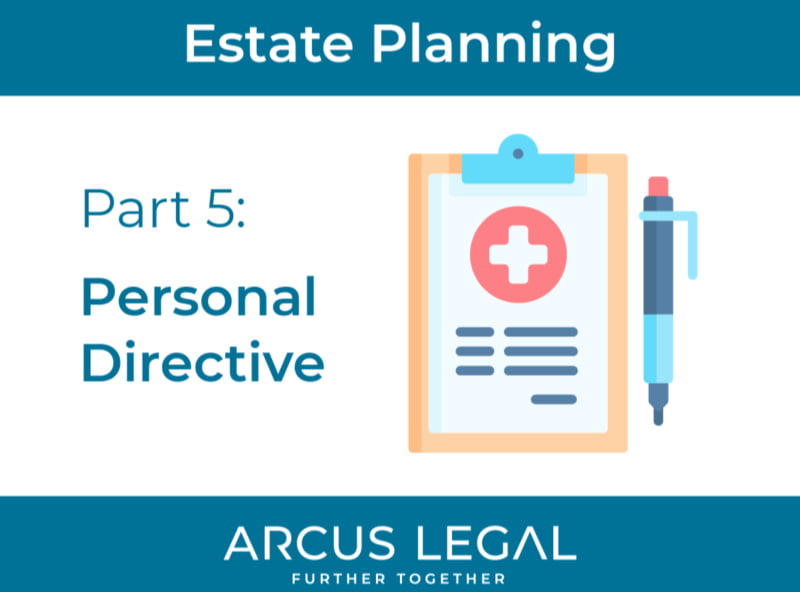A Personal Care Directive (“PD”) is where you delegate your decision-making authority regarding your personal care and your medical decisions to a trusted loved one. The PD applies only during your life, and only applies once your capacity has been assessed and you are deemed incapable of making your own personal care and medical decisions.
The person you appoint under your PD is called your Delegate. Your Delegate is usually a trusted family member such as a spouse, sibling, or adult child.
Once you appoint your Delegate, speak to them about your wishes and philosophy surrounding your personal and end of life care. Focus on what types of interventions you feel strongly about, and consider when you may want different levels of intervention. While this is uncomfortable to discuss, it is best to face the reality rather than wait until it is too late.
If you do not have a PD then the Adult Capacity and Decision Making Act (“ACDMA”) applies if you become incapable of making personal care decisions. If the ACDMA applies, a court application will be required which can be costly and time-consuming. It is much easier for all concerned for you to have your own PD. The PD can be done without a lawyer, however with legal advice you are more likely to have covered all the legal issues.





